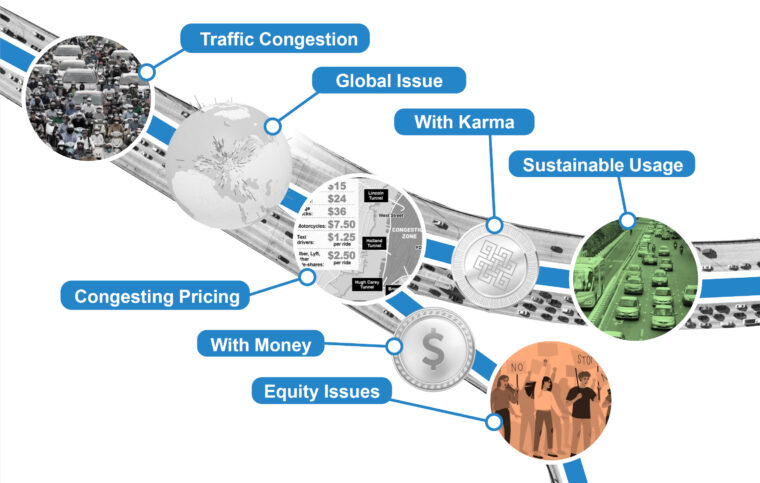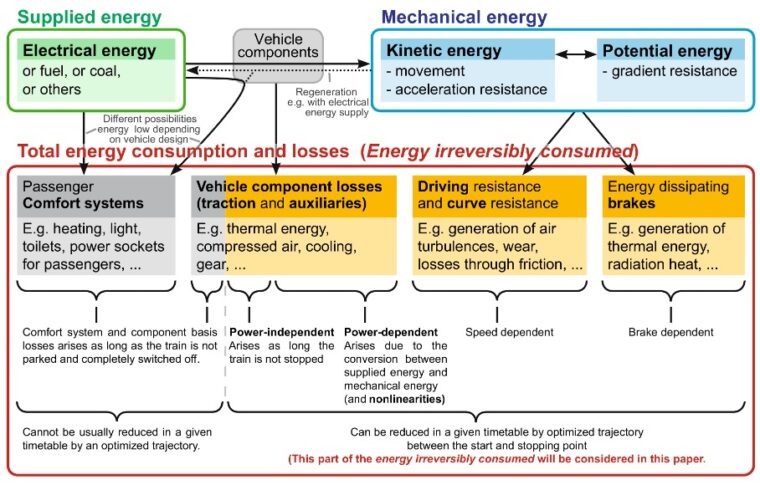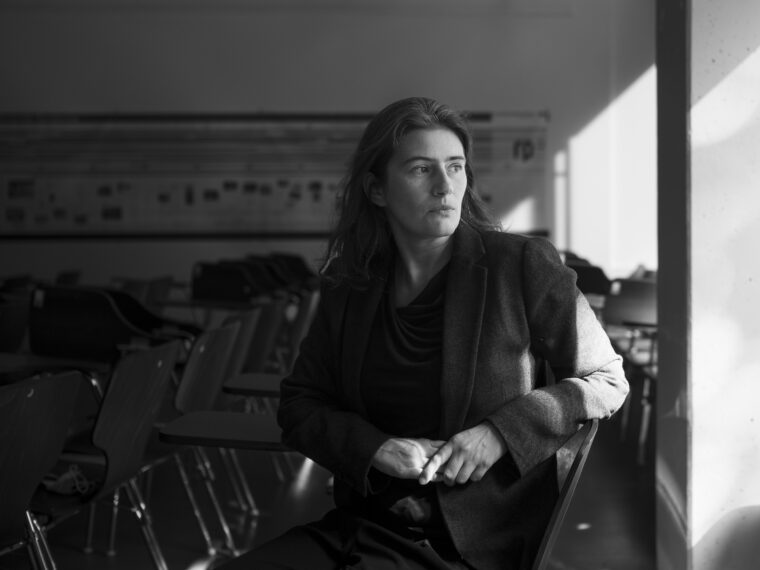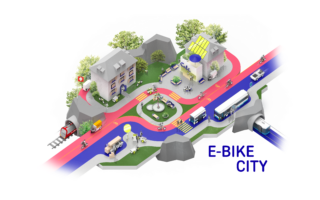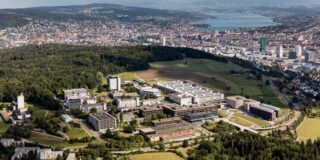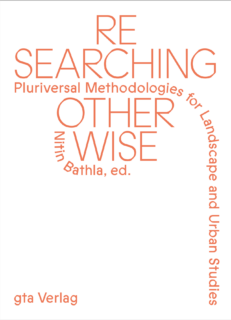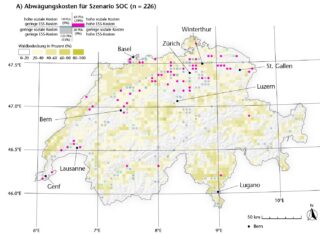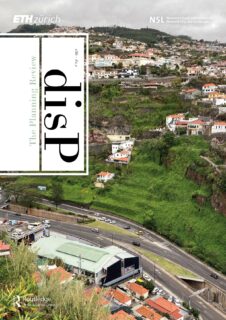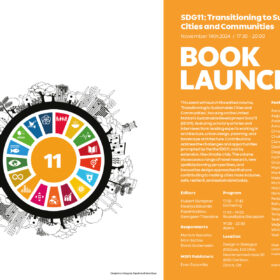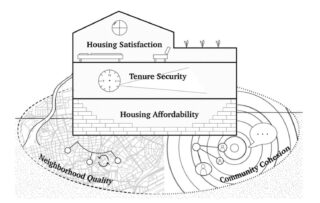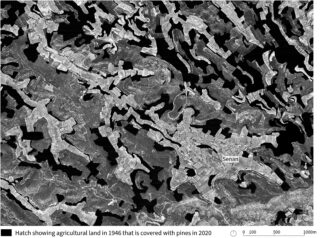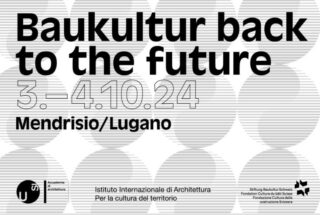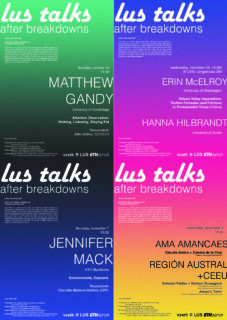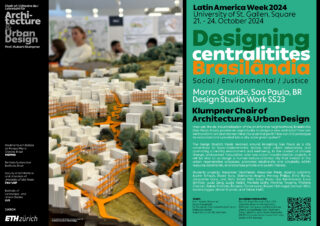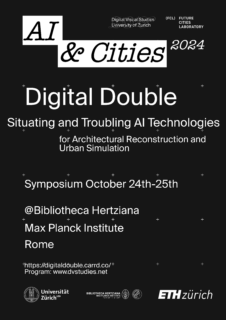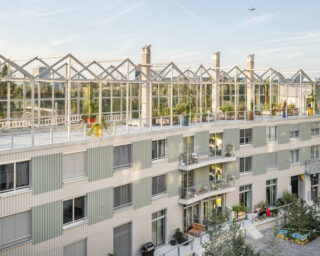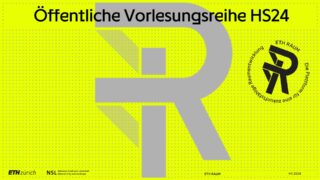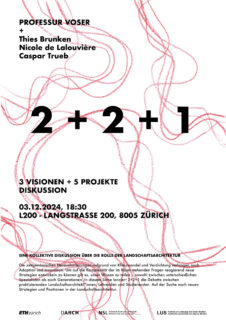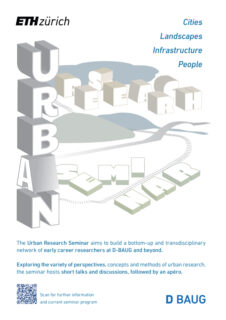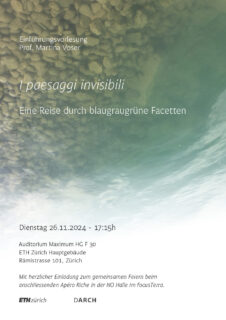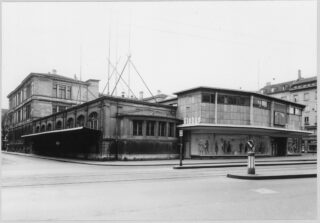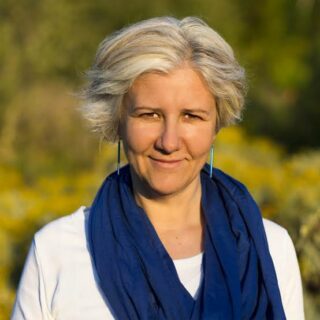Dear Readers,
Various forms of mobility contribute differently to resource and energy consumption. This newsletter considers topics of fairness in resource distribution and ways to reduce energy consumption while increasing efficiency. In an interview, Martina Voser describes how Switzerland can be understood as a condensed laboratory for landscape design and planning. We also introduce Eva Heinen, who addresses means of confronting congestion and over-reliance on cars. Wishing you a stimulating read!
Luke Harris, Johanna Just, Camila Medina Novoa, Cara Turett | Chair of Being Alive, Teresa Galí-Izard
The NSL Colloquium will take place February 26-28 2025 at ETH Zürich and publishes an open call for submissions until November 8, 2024. The colloquium will investigate the relationship between the design and maintenance of living systems, seeking to cultivate practices, terminology, and theoretical insights into approaches that attempt to maintain otherwise. Mehr
David Zani & Bryan T. Adey | Infrastructure Management
Cost-benefit analysis is a tool frequently used in project appraisal to justify the implementation of infrastructures. Due to insufficient recorded data, the construction costs and safety benefits of urban bicycling infrastructure are difficult to estimate, weakening the appraisal and implementation of such projects. In this research, we conducted a study in Zurich to estimate construction costs and safety benefits of a city-wide cycling network, and showed that such a network has a high benefit-cost ratio (between 9 and 31).
Sustainable Construction | Guillaume Habert
We are thrilled to announce the Sustainable Built Environment Conference (SBE25), which will be held from June 25 to 27, 2025 in Zürich. The conference topic is “Shaping Tomorrow: Systems Thinking in the Built Environment”. Releasing over 40% of global greenhouse gas emissions and consuming over 40% of primary resources, the built environment needs an urgent transformation towards climate neutrality and circularity while hosting a booming humanity in dignified conditions under climate change. Abstract submission deadline: 31 October 2024.
Kay W. Axhausen, Verkehrsplanung | Hubert Klumpner, Architektur und Städtebau | David Kaufmann, Raumentwicklung und Stadtpolitik
Did you miss the NSL Forum and Cycling Research Board «Digital Twins for Europe’s Future Mobility», on September 4th? The video link is now available on the event website! In addition, for a quick read and an overview of the workshops, you can download the «Collective Manifesto for a More than Human Design Culture».
3-4 October 2024 | Kolloquium | Mendrisio, Lugano.
Mehr
10 October – 4 December 2024, 18:30-20:00 | ETH Zürich, Design in Dialogue Lab, Neunbrunnenstrasse 50.
Mehr
21-24 October 2024 | St. Gallen, SQUARE, Guisanstrasse 20 Mehr
24-25 October 2024, 09:00–18:00 | Symposium | Rome, Bibliotheca Hertziana – Max Planck Institute for Art History.
Mehr
29. Oktober 2024, 16:00 – 17:30 | Mehrzweckraum, Westhof Dübendorf, Zukunftstrasse 13, 8600 Dübendorf
Mehr
29. Oktober 2024 – 8. Januar 2025 | ETH Zürich, Hönggerberg
Mehr
3. Dezember 2024, jeweils 18:30 | Zürich, Langstr. 200.
Mehr
Sustainable Construction | Application Window: 1 – 30 November 2024.
Mehr
6-8 November 2024, 09:00–18:00 | Symposium | ETH Zürich.
Mehr
22. November 2024, 14:00 – 18:00 | ETH Zürich, HIL H 35.1
Mehr
26. November, 17:15 | ETH Zürich, Hauptgebäude HG F 30 (Auditorium Maximum), Rämistrasse 101.
Mehr
27. November 2024 | Kolloquium | ETH Zürich.
Mehr
Die Schelling Architekturstiftung vergibt alle zwei Jahre die Schelling Architekturpreise. Mehr
ETH-Forschende haben mit Forschenden aus der Ukraine und Deutschland untersucht, wie sich die zerstörte ukrainische Energieinfrastruktur mit erneuerbarer Energie wiederaufbauen lässt. Demnach ermöglichen Solar- und Windkraft eine schnelle, dezentrale Versorgung und beugen der Korruption vor. Artikel in den ETH News.
Redaktionsteam
Silvia Converso, Institut für Landschaft und Urbane Studien (LUS), Landschaftsarchitektur
Michiel van Iersel, Institut für Landschaft und Urbane Studien (LUS), Städtebau
Viera Klasovitá, Institut für Verkehrsplanung und Transportsysteme (IVT)
Klearjos Papanicolaou, Institut für Landschaft und Urbane Studien (LUS), Städtebau
Noelle Paulson und Claudia Gebert, Koordinationsstelle NSL, Chefredaktion
Maarten Van Strien, Institut für Raum- und Landschaftsentwicklung (IRL)
